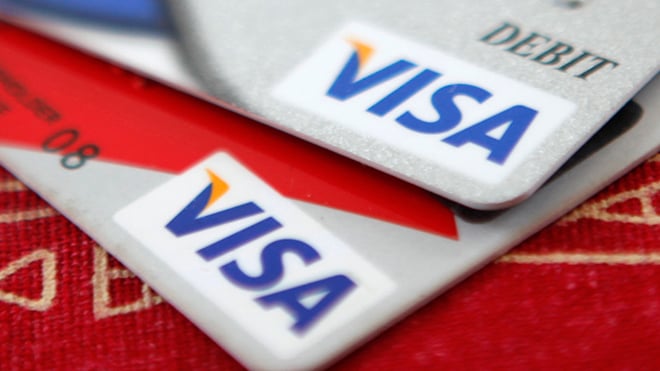Not all Granted VISA’s Green Light for Gambling Transactions
Posted on: May 21, 2013, 05:33h.
Last updated on: May 20, 2013, 06:34h.
 It was so simple for awhile: since April 2011 (and for many companies, even before) and the U.S. Department of Justice’s clear manifesto that online gambling transactions were not to be handled by banks on pain of legal action, credit card companies just said no to anything that they could tell came from an Internet gambling site.
It was so simple for awhile: since April 2011 (and for many companies, even before) and the U.S. Department of Justice’s clear manifesto that online gambling transactions were not to be handled by banks on pain of legal action, credit card companies just said no to anything that they could tell came from an Internet gambling site.
Ever since the Unlawful Internet Gambling Enforcement Act (UIGEA) put the kaibosh on legal Internet banking transactions for gambling sites, the Merchant Category Code (MCC) 7995 meant “no can do” for credit card processors if they wanted to stay on the right side of the law.
But with the first legal online gambling site in Nevada now up and running, and more waiting in the wings, the game’s all changed now, and it’s causing some headaches on both sides of the banking fence.
Legal vs. Illegal Transactions
The headaches aren’t necessarily new; many Internet gambling sites, in the wake of Black Friday, ran their transactions through “skins” that made them appear to be for innocuous online purchases so that payments would go through, putting the onus on the clearing bank to know who was actually legit. Now both the move of state lotteries towards online purchases, and the recent launch of UltimatePoker.com, a legal Stations Casinos-owned Internet poker site for Nevadans (with Caesars set to bring on their own WSOP site any day now), the whole ball of wax is becoming a big, mushy mess. Mastercard is already on board as a deposit, but not withdrawal, option for Ultimate’s site, while VISA is still ironing out how to separate the legal wheat from the illegal chaff in these matters altogether.
Validation Required
To make the new distinction between illegal and legal payments, VISA has now instituted a Merchant Verification Value (MVV) Registration Program, which will allow approved merchants to bypass the rejection process by passing certain hurdles. Among these, merchants will need to provide evidence of having the legal authority for the gambling options they provide; a legal opinion that clarifies said merchants’ compliance with all applicable state and federal laws; a third-party certification that the provider has the software and controls to guarantee they stay within legal parameters, and a $5K registration fee (which, in all honesty, is chump change for a gambling site).
No doubt this is the just the tip of the regulatory iceberg for banks and online gaming sites alike. Hopefully, no one hits any.
Related News Articles
FBI Used Taxpayer Funds in Undercover Legends Sports Sting
Bitcoins Are Out for OKPay Payment Processor
Dutch Investigations Shut Down Seven Online Gambling Sites
Most Popular
Las Vegas Overstated F1 Race’s Vegas Impact — Report
Vegas Strip Clubs Wrestle in Court Over Animal Names
Most Commented
-
End of the Line for Las Vegas Monorail
— April 5, 2024 — 90 Comments -
Mega Millions Reportedly Mulling Substantial Ticket Price Increase
— April 16, 2024 — 6 Comments -
Long Island Casino Opponents Love New York Licensing Delays
— March 27, 2024 — 5 Comments















